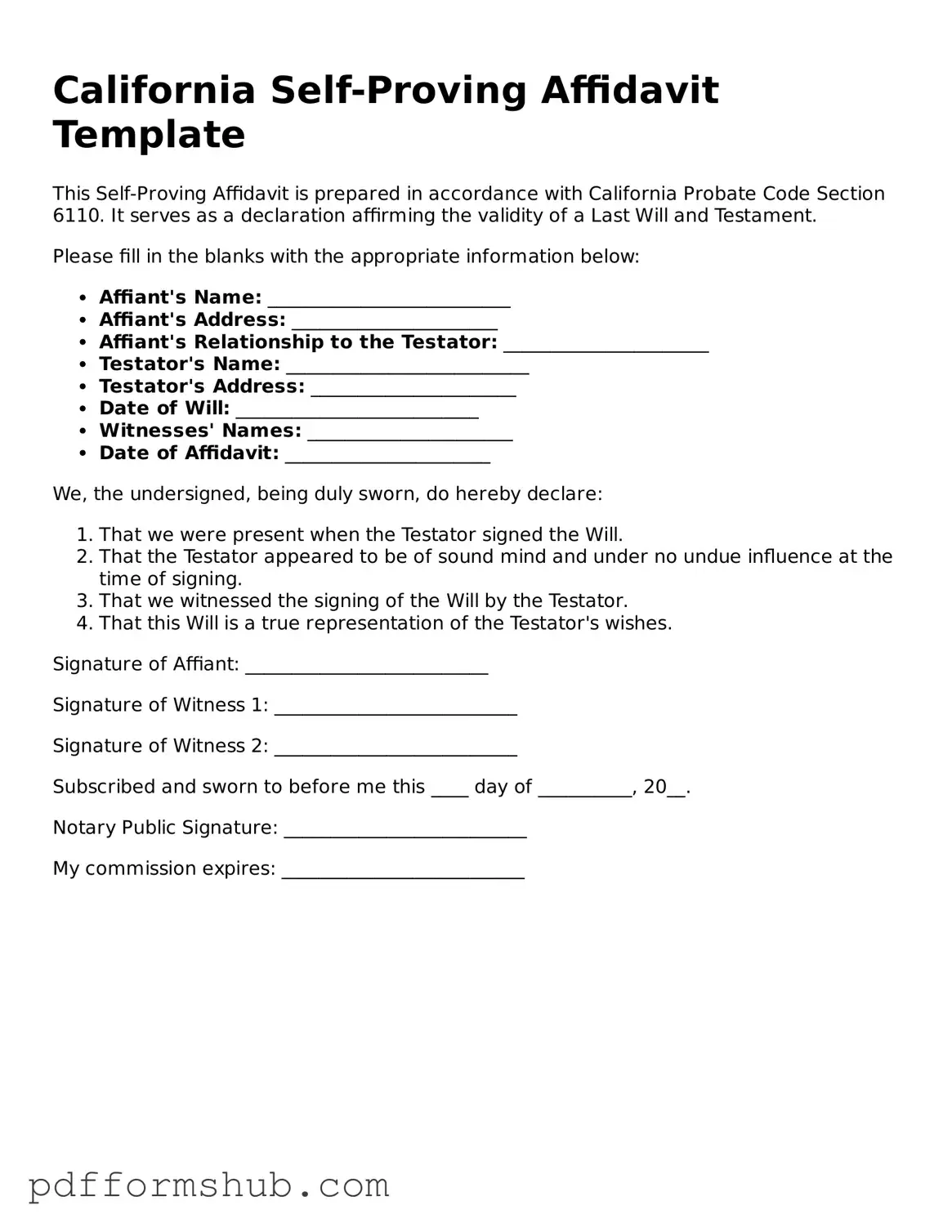Attorney-Verified Self-Proving Affidavit Form for California State
The California Self-Proving Affidavit is a legal document that allows a testator's will to be validated without the need for witnesses to testify in court. This form simplifies the probate process by confirming the authenticity of the will and the testator's intentions. For those looking to ensure their wishes are honored, filling out this form is a crucial step; click the button below to get started.
Customize Form

Attorney-Verified Self-Proving Affidavit Form for California State
Customize Form

Customize Form
or
Free PDF Form
Short deadline? Complete this form now
Complete Self-Proving Affidavit online without printing hassles.